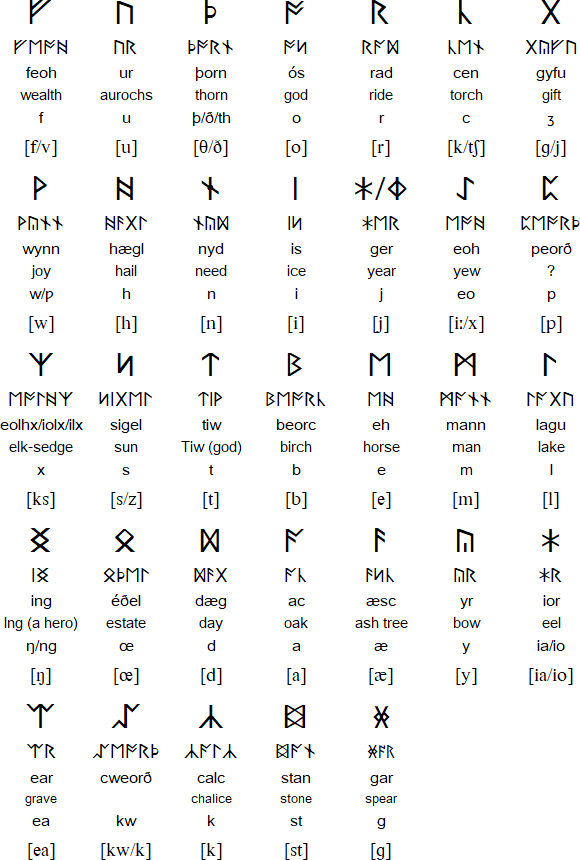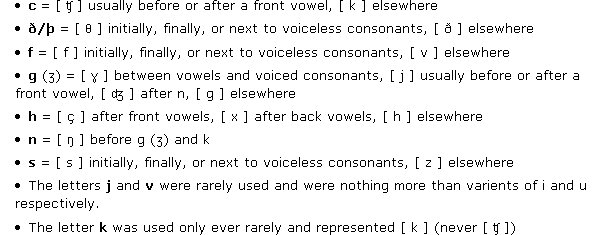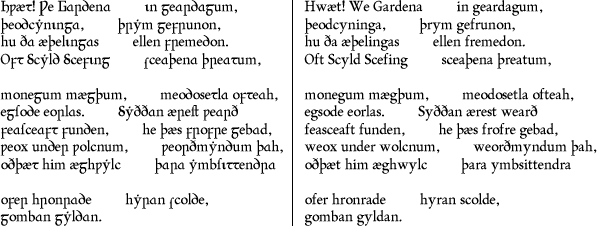آموزش زبان انگلیسی
آموزش زبان انگلیسی ,آموزش گرامر انگلیسی , مکالمه انگلیسی, اصطلاح , لغت , تست , سرگرمی , ضرب المثل, شعر , داستان , نکته ها ی مهم , و اخبار جالب..آموزش زبان انگلیسی
آموزش زبان انگلیسی ,آموزش گرامر انگلیسی , مکالمه انگلیسی, اصطلاح , لغت , تست , سرگرمی , ضرب المثل, شعر , داستان , نکته ها ی مهم , و اخبار جالب..20 Common Grammar Mistakes That (Almost) Everyone Makes آموزش زبان انگلیسی
20 Common Grammar Mistakes That (Almost) Everyone Makes
Who and Whom
This one opens a big can of worms. “Who” is a subjective — or nominative — pronoun, along with "he," "she," "it," "we," and "they." It’s used when the pronoun acts as the subject of a clause. “Whom” is an objective pronoun, along with "him," "her," "it", "us," and "them." It’s used when the pronoun acts as the object of a clause. Using “who” or “whom” depends on whether you’re referring to the subject or object of a sentence. When in doubt, substitute “who” with the subjective pronouns “he” or “she,” e.g., Who loves you? cf., He loves me.Similarly, you can also substitute “whom” with the objective pronouns “him” or “her.” e.g., I consulted an attorney whom I met in New York. cf., I consulted him.
Which and That
This is one of the most common mistakes out there, and understandably so. “That” is a restrictive pronoun. It’s vital to the noun to which it’s referring. e.g., I don’t trust fruits and vegetables that aren’t organic. Here, I’m referring to all non-organic fruits or vegetables. In other words, I only trust fruits and vegetables that are organic. “Which” introduces a relative clause. It allows qualifiers that may not be essential. e.g., I recommend you eat only organic fruits and vegetables, which are available in area grocery stores. In this case, you don’t have to go to a specific grocery store to obtain organic fruits and vegetables. “Which” qualifies, “that” restricts. “Which” is more ambiguous however, and by virtue of its meaning is flexible enough to be used in many restrictive clauses. e.g., The house, which is burning, is mine. e.g., The house that is burning is mine.
Lay and Lie
This is the crown jewel of all grammatical errors. “Lay” is a transitive verb. It requires a direct subject and one or more objects. Its present tense is “lay” (e.g., I lay the pencil on the table) and its past tense is “laid” (e.g.,Yesterday I laid the pencil on the table). “Lie” is an intransitive verb. It needs no object. Its present tense is “lie” (e.g., The Andes mountains lie between Chile and Argentina) and its past tense is “lay” (e.g., The man lay waiting for an ambulance). The most common mistake occurs when the writer uses the past tense of the transitive “lay” (e.g., I laid on the bed) when he/she actually means the intransitive past tense of “lie" (e.g., I lay on the bed).
Moot
Contrary to common misuse, “moot” doesn’t imply something is superfluous. It means a subject is disputable or open to discussion. e.g., The idea that commercial zoning should be allowed in the residential neighborhood was a moot point for the council.
Continual and Continuous
They’re similar, but there’s a difference. “Continual” means something that's always occurring, with obvious lapses in time. “Continuous” means something continues without any stops or gaps in between. e.g., The continual music next door made it the worst night of studying ever. e.g., Her continuous talking prevented him from concentrating.
Envy and Jealousy
The word “envy” implies a longing for someone else’s good fortunes. “Jealousy” is far more nefarious. It’s a fear of rivalry, often present in sexual situations. “Envy” is when you covet your friend’s good looks. “Jealousy” is what happens when your significant other swoons over your good-looking friend.
Nor
“Nor” expresses a negative condition. It literally means "and not." You’re obligated to use the “nor” form if your sentence expresses a negative and follows it with another negative condition. “Neither the men nor the women were drunk” is a correct sentence because “nor” expresses that the women held the same negative condition as the men. The old rule is that “nor” typically follows “neither,” and “or” follows “either.” However, if neither “either” nor “neither” is used in a sentence, you should use “nor” to express a second negative, as long as the second negative is a verb. If the second negative is a noun, adjective, or adverb, you would use “or,” because the initial negative transfers to all conditions. e.g., He won’t eat broccoli or asparagus. The negative condition expressing the first noun (broccoli) is also used for the second (asparagus).
May and Might
“May” implies a possibility. “Might” implies far more uncertainty. “You may get drunk if you have two shots in ten minutes” implies a real possibility of drunkenness. “You might get a ticket if you operate a tug boat while drunk” implies a possibility that is far more remote. Someone who says “I may have more wine” could mean he/she doesn't want more wine right now, or that he/she “might” not want any at all. Given the speaker’s indecision on the matter, “might” would be correct.
Whether and If
Many writers seem to assume that “whether” is interchangeable with “if." It isn’t. “Whether” expresses a condition where there are two or more alternatives. “If” expresses a condition where there are no alternatives. e.g., I don’t know whether I’ll get drunk tonight. e.g., I can get drunk tonight if I have money for booze.
Fewer and Less
“Less” is reserved for hypothetical quantities. “Few” and “fewer” are for things you can quantify. e.g., The firm has fewer than ten employees. e.g., The firm is less successful now that we have only ten employees.
Farther and Further
The word “farther” implies a measurable distance. “Further” should be reserved for abstract lengths you can't always measure. e.g., I threw the ball ten feet farther than Bill. e.g., The financial crisis caused further implications.
Since and Because
“Since” refers to time. “Because” refers to causation. e.g., Since I quit drinking I’ve married and had two children. e.g., Because I quit drinking I no longer wake up in my own vomit.
Disinterested and Uninterested
Contrary to popular usage, these words aren’t synonymous. A “disinterested” person is someone who’s impartial. For example, a hedge fund manager might take interest in a headline regarding the performance of a popular stock, even if he's never invested in it. He’s “disinterested,” i.e., he doesn’t seek to gain financially from the transaction he’s witnessed. Judges and referees are supposed to be "disinterested." If the sentence you’re using implies someone who couldn't care less, chances are you’ll want to use “uninterested.”
Anxious
Unless you’re frightened of them, you shouldn’t say you’re “anxious to see your friends.” You’re actually “eager,” or "excited." To be “anxious” implies a looming fear, dread or anxiety. It doesn’t mean you’re looking forward to something.
Different Than and Different From
This is a tough one. Words like “rather” and “faster” are comparative adjectives, and are used to show comparison with the preposition “than,” (e.g., greater than, less than, faster than, rather than). The adjective “different” is used to draw distinction. So, when “different” is followed by a preposition, it should be “from,” similar to “separate from,” “distinct from,” or “away from.” e.g., My living situation in New York was different from home. There are rare cases where “different than” is appropriate, if “than” operates as a conjunction. e.g.,Development is different in New York than in Los Angeles. When in doubt, use “different from.”
Bring and Take
In order to employ proper usage of “bring” or “take,” the writer must know whether the object is being moved toward or away from the subject. If it is toward, use “bring.” If it is away, use “take.” Your spouse may tell you to “take your clothes to the cleaners.” The owner of the dry cleaners would say “bring your clothes to the cleaners.”
Impactful
It isn't a word. "Impact" can be used as a noun (e.g., The impact of the crash was severe) or a transitive verb (e.g., The crash impacted my ability to walk or hold a job). "Impactful" is a made-up buzzword, colligated by the modern marketing industry in their endless attempts to decode the innumerable nuances of human behavior into a string of mindless metrics. Seriously, stop saying this.
Affect and Effect
Here’s a trick to help you remember: “Affect” is almost always a verb (e.g., Facebook affects people’s attention spans), and “effect” is almost always a noun (e.g., Facebook's effects can also be positive). “Affect” means to influence or produce an impression — to cause hence, an effect. “Effect” is the thing produced by the affecting agent; it describes the result or outcome. There are some exceptions. “Effect” may be used as a transitive verb, which means to bring about or make happen. e.g., My new computer effected a much-needed transition from magazines to Web porn. There are similarly rare examples where “affect” can be a noun. e.g., His lack of affect made him seem like a shallow person.
Irony and Coincidence
Too many people claim something is the former when they actually mean the latter. For example, it’s not “ironic” that “Barbara moved from California to New York, where she ended up meeting and falling in love with a fellow Californian.” The fact that they’re both from California is a "coincidence." "Irony" is the incongruity in a series of events between the expected results and the actual results. "Coincidence" is a series of events that appear planned when they’re actually accidental. So, it would be "ironic" if “Barbara moved from California to New York to escape California men, but the first man she ended up meeting and falling in love with was a fellow Californian.”
Nauseous
Undoubtedly the most common mistake I encounter. Contrary to almost ubiquitous misuse, to be “nauseous” doesn’t mean you’ve been sickened: it actually means you possess the ability to produce nausea in others. e.g., That week-old hot dog is nauseous. When you find yourself disgusted or made ill by a nauseating agent, you are actually “nauseated.” e.g., I was nauseated after falling into that dumpster behind the Planned Parenthood. Stop embarrassing yourself.
آموزش زبان انگلیسی Old English
Old English / Anglo-Saxon (Englisc)
Old English was the West Germanic language spoken in the area now known as England between the 5th and 11th centuries. Speakers of Old English called their language Englisc, themselves Angle, Angelcynn or Angelfolc and their home Angelcynn or Englaland.
Old English began to appear in writing during the early 8th century. Most texts were written in West Saxon, one of the four main dialects. The other dialects were Mercian, Northumbrian and Kentish.
The Anglo-Saxons adopted the styles of script used by Irish missionaries, such as Insular half-uncial, which was used for books in Latin. A less formal version of minuscule was used for to write both Latin and Old English. From the 10th century Anglo-Saxon scribes began to use Caroline Minuscule for Latin while continuing to write Old English in Insular minuscule. Thereafter Old English script was increasingly influenced by Caroline Minuscule even though it retained a number of distinctive Insular letter-forms.
Anglo-Saxon Futhorc
Old English / Anglo-Saxon was sometimes written with a version of the Runic alphabet, brought to Britain by the Anglo-Saxons until about the 11th century.
Runic inscriptions are mostly found on jewellery, weapons, stones and other objects. Very few examples of Runic writing on manuscripts have survived

Old English alphabet

Notes
- Long vowels were marked with macrons. These were not written originally used in Old English but are a more modern invention to distinguish between long and short vowels.
- The alternate forms of g and w (yogh and wynn/wen respectively) were based on the letters used at the time of writing Old English. Today they can be substituted for g and w in modern writing of Old English.
- Yogh originated from an insular form of g and wynn/wen came from a runic letter and was used to represent the non-Latin sound of [ w ]. The letters g and w were introduced later by French scribes. Yogh came to represent [ ç ] or [ x ].
Old English pronunciation

Notes

Sample text in Old English (Prologue from Beowulf
)

Links
The Electronic Introduction to Old English
http://www.wmich.edu/medieval/resources/IOE/
Learn Old English - a basic introduction
http://www.jebbo.co.uk/learn-oe/contents.htm
Ða Engliscan Gesiðas - the society for people interested in all aspects of Anglo-Saxon language and culture: http://tha-engliscan-gesithas.org.uk/
Old English dictionaries
http://home.comcast.net/~modean52/oeme_dictionaries.htm
http://lexicon.ff.cuni.cz/app/
Beowulf in Hypertext
http://www.humanities.mcmaster.ca/~beowulf/
.
History of the English Language
History of the English Language
A short history of the origins and development of English
The history of the English language really started with the arrival of three Germanic tribes who invaded Britain during the 5th century AD. These tribes, the Angles, the Saxons and the Jutes, crossed the North Sea from what today is Denmark and northern Germany. At that time the inhabitants of Britain spoke a Celtic language. But most of the Celtic speakers were pushed west and north by the invaders—mainly into what is now Wales, Scotland and Ireland. The Angles came from Englaland and their language was called Englisc—from which the words England and English are derived